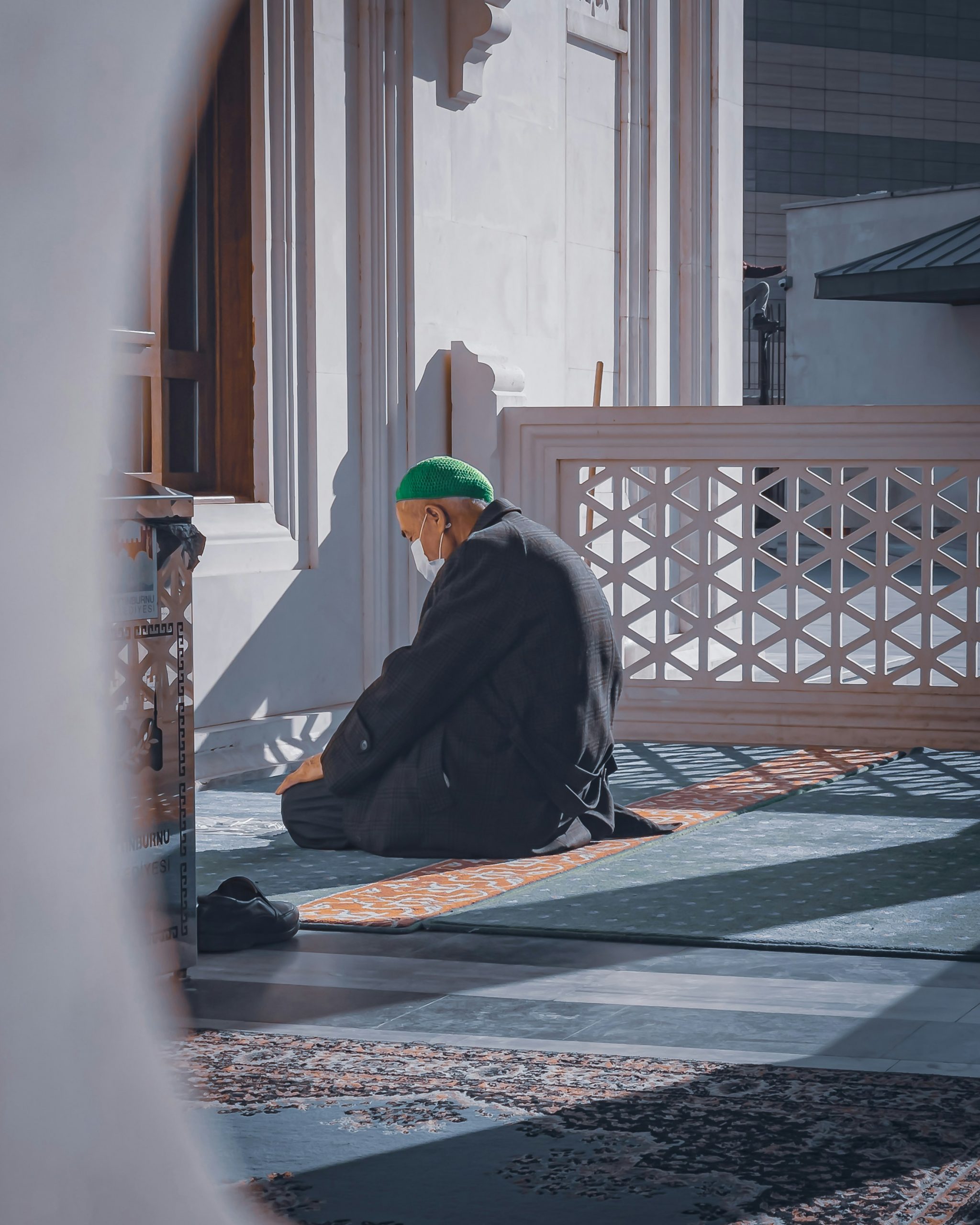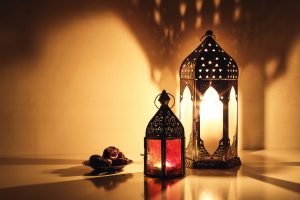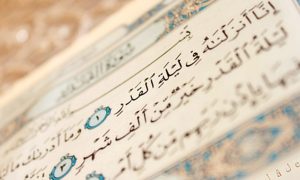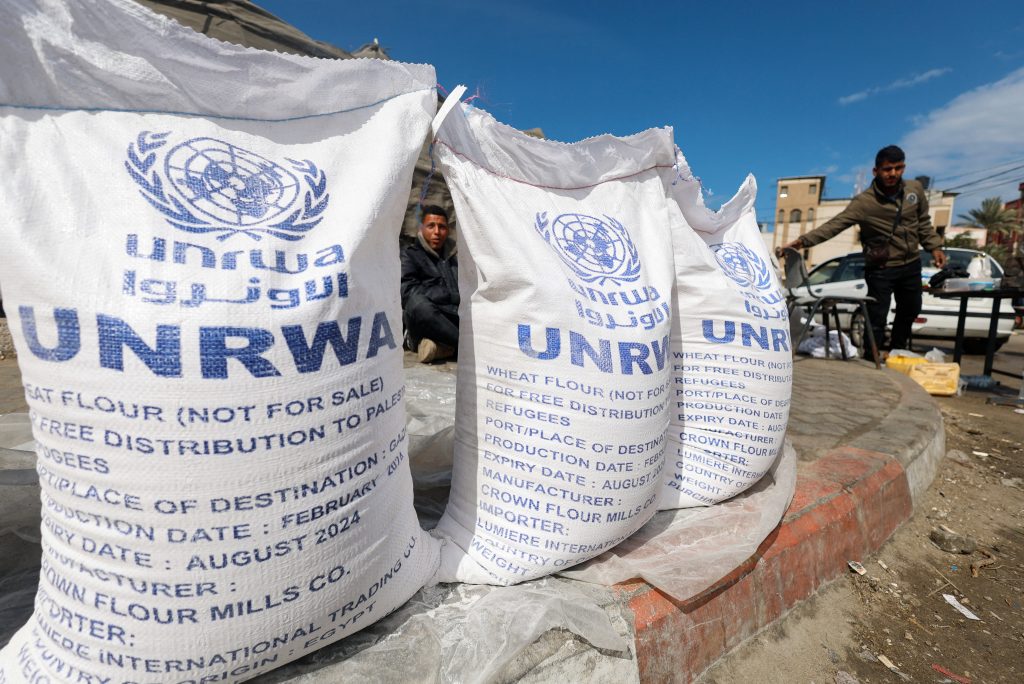The Long Road To Muslim Bangsamoro: 10 Years On
It has been a half-century since one of the most remarkable struggles for autonomy by a Muslim minority began, in what is now the Philippines’ southwestern region of Mindanao. Long inhabited by a collection of Muslim ethnic groups known collectively as Moros, this region had a history of Muslim autonomy and fierce resistance to outsiders. Its controversial affixation to the Philippines, and a general history of neglect that mounted by the 1970s to violent persecution, provoked a long-running war punctuated by bouts of diplomacy, frequent splinters, fallouts, and renewed conflict. The Manila Accord, signed ten years ago this month, at last afforded an effective if imperfect autonomy to the Muslim region now known as Bangsamoro, or Land of the Moros.
BackgroundSituated on the eastern perimeter of the Muslim world as it is, the Moro struggle has rarely received the attention it deserves. Like much of eastern Asia, various ethnic groups in the region converted to Islam gradually through the influence of wandering preachers and merchants, so that by the fifteenth century several maritime Muslim sultanates had emerged. Over the course of the next few centuries, they had trade relations with their neighbors interspersed with conflict, but from the nineteenth century successive colonial empires entered the region, each met with local resistance. First was the Spanish Empire, who coined the term “Moro” – ironically from the Spanish “Moor”, used for North Africans at the opposite western end of the Muslim world; last was the Japanese Empire during the Second World War. And in between was the nascent American Empire, fresh off defeating Spain in the Philippines. Early conviviality, brokered by the Ottoman sultanate, soon escalated into hostility, local resistance, and a ruthless decade-long war, where the famed American generalissimo John Pershing cut his teeth. In their first war on land against a Muslim opponent, so unnerved were the American army by their opponents’ ferocity on the battlefield that they sought to combat the Muslim belief in martyrdom by, infamously, burying their opponents with dead pigs.
Subsequent Moro opposition to the Japanese Empire thereafter saw their terrain lumped in with the Philippines, a country that took pride in being East Asia’s only Christian country. Reflecting colonial education, early Philippine elites saw the province’s poverty as a sign of Muslim backwardness and generally dealt only with a select Muslim aristocracy that, in turn, sought to protect its own privileges. Manila also promoted land settlement by Christians from the Philippine mainland who came to exchange predatory deals with the Moro elites at the cost of Moro society at large.
A Fight for SurvivalThe generally accepted trigger for the Moro revolt came in the spring of 1968, when a Philippine army battalion – led, ironically, by a Muslim convert, Abdul-Latif Martelino – slaughtered Muslim recruits who refused to fight in a territorial dispute over the neighboring Sabah region of Malaysia. This was followed by gang warfare, partly linked to competing political elites, where the Philippine army systemically backed murderous thugs of Christian background to go on killing sprees: one infamous case in the summer of 1971 saw families butchered in a mosque.
This outraged Moro society such that even elites such as Udtug Matalam and Rashid Lucman called for political change if not revolt. Malaysia was similarly annoyed: it was no coincidence that Sabah premier Mustafa Harun, whose land was threatened by the Philippines, began to train Moro fighters, while former Malaysian prime minister Abdul-Rahman bin Abdul-Hamid used his forum at the Organization of Islamic Cooperation to bring attention to the Moros. Libyan dictator Muammar Qaddhafi, then in an early Islamic phase of his long and evolving career, was a particularly influential early supporter, calling the conflict a genocide and lending financial and diplomatic support. The Organization has since attracted legitimate criticism for its somnolence, but in those early days it was quite active on the Moro file.
But by far the longest-lasting call for change came from local Moros, including student activists, peasants, and Islamic students. Reflecting a mixture of populism, Islamic identity, and popular culture, insurgents took on roving nicknames as varied as “Solitario”, “Mukhtar”, and “Tony Falcon”. Insurgent leaders included Nur Misuari, a charismatic activist from Sulu, and Salamat Hashim, an Islamic revivalist from Maguindanao who sought to match political and Islamic resurgence. In autumn 1972 – as Ferdinand Marcos imposed emergency rule over the Philippines to become a dictator – Misuari launched the Moro National Liberation Front, which called for independence and engaged in fierce warfare with Marcos’ army over the mid-1970s. Infamously, in February 1974 the army destroyed the historic town Jolo, while such provinces as Cotabato and Maguindanao became constant battlefields. But insurgent resilience and pressure by Muslim states forced Marcos to the 1976 Tripoli Accord, mediated by Libyan foreign minister, which vaguely promised autonomy and Islamic law.
The Costs of DivisionYet Marcos stalled, instead trying to break up the opposition and coopt local elites. In many cases commanders would surrender in return for protecting their communities from the army by acting as local militias; in other cases it was pure opportunism. From the late 1970s a number of senior commanders broke away: Abulkhair Alonto and Jamil “Junglefox” Lucman, both from aristocratic families, defected from the insurgency, while Dimasangcay Pundato and Salamat, unhappy with Misuari’s leadership, broke away. Salamat’s Moro Islamic Liberation Front was by far the more influential: with a stronger emphasis on Islamic social renewal and embedding local ties than Misuari’s loosely organized group, it soon attracted a mass following that continues to this day.
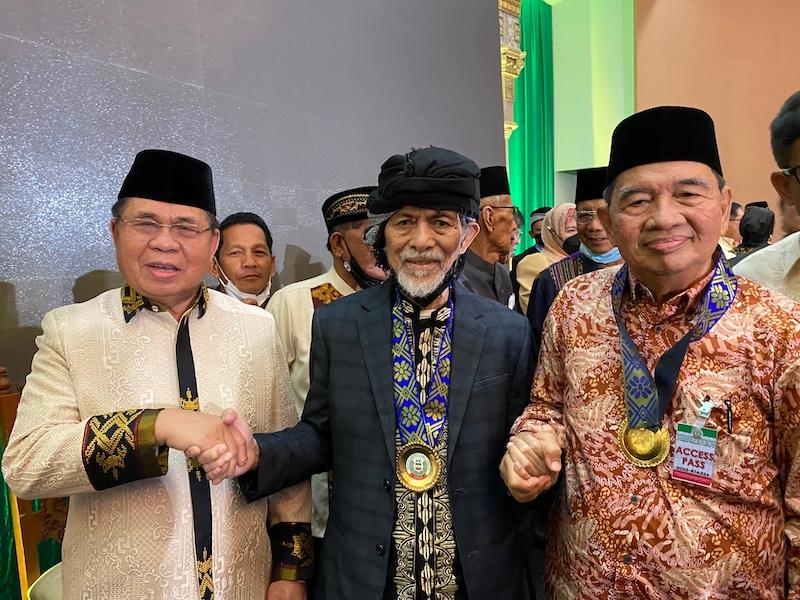
Left to right: Murad Ibrahim, emir of Bangsamoro and the Islamic Front; Nur Misuari, leader of the National Front and former regional premier; and Muslimin Sema, another independence leader. [Photo by Carolyn Arguillas for Mindanews]
While the war did not return to the ferocity of the mid-1970s, the 1980s and 1990s saw on-and-off conflict interspersed with negotiations. The overthrow of Marcos in 1986 promised a brighter future, yet Hashim’s Islamists – by now the biggest rebel group – were excluded from talks. Eventually, an autonomous Muslim region was formed in 1990, with Zacaria Candao, a politician acceptable to both the Islamists and the government, as its premier. Eventually Misuari, after signing an Indonesian-mediated deal in 1996, returned from the wilderness as Muslim premier, subsequently proving a poorer governor than rebel.Only part of the Muslim-majority region was included in the autonomy deal, while the Islamic Front lacked formal recognition in spite of their strength on the ground. The Islamists’ system of camps and bases were really sprawling communities, with public services, education, and a fairly disciplined military and security apparatus: Salamat and his main lieutenants, Murad Ibrahim and Abdul-Aziz Mimbantas, were as much respected community leaders as commanders. Continued exclusion prompted some militants to form more brutal groups: one example was the Janjalani brothers Abdul-Raziq and Khadaffy, whose network mounted a series of massacres and atrocities that ran quite separate to, but occasionally attracted defectors from, the main Islamic Front.
War and PeaceDuring the late 1990s, the Islamic Front engaged in a mixture of battles and negotiations with governments: battles would often be accompanied by tortuous negotiations between government officials and the Islamic Front’s foreign minister Ghazali Jafar. The talks were at an advanced stage when, at the turn of the millennium, the impatient ruler Joseph Estrada, a former actor who lacked statesmanship, announced an “all-out war”. By July 2000 the army had captured the Islamists’ headquarters at Barira, yet this only provoked a long-running insurgency, during which Salamat passed away and was replaced with Murad.
The Philippine government tried with limited success to frame its campaign as part of the “war on terror” – helped, inadvertently, by the continued violence of the Janjalani network – yet by the late 2000s it was obvious that talks should resume. A renewed agreement on autonomy in 2008 was promptly thrown out, under pressure from Christian politicians, by the Philippine Supreme Court. The war was complicated, meanwhile, by violence and criminality from communities and families linked to both the government and its opposition. Though the Islamic Front enhanced its internal discipline during Murad’s leadership, disconsolate commanders – most famously veteran field commander Umbra Cato – rejected the talks and broke away. Misuari, sacked as premier in 2001, subsequently organized two attacks, first at his hometown Jolo, and then, a decade later in 2013, on the bigger city of Zamboanga. Even the heir of the Sulu sultanate, the first Moro sultanate based at Jolo, surfaced at Malaysia’s adjacent Sabah region to lay claim to their title.
It was against this backdrop that Malaysian diplomat Abdul-Ghafar Mohammad resumed mediation with increased urgency. The Islamic Front was represented by Mohagher Iqbal, a veteran writer and diplomat for the Islamists, while the government was represented by the academic Miriam Coronel-Ferrer, who withstood considerable criticism to accommodate an insurgency whose grievances she felt were legitimate. The Manila Accord they signed in the spring of 2014 put the Muslim-majority region under Bangsamoro, with the Islamic Front as governing authority while the army would remain for an interim period.
That period expired in 2019, and Bangsamoro has been ruled by Murad Ibrahim since. There have been loose ends, particularly during the transitional period of 2014-19: in 2017, most infamously, the Janjalanis’ roving successor Isnilon Hapilon joined Daesh and laid a six-month siege to the city of Marawi. The Islamic Front, whose security warnings had been neglected by Manila, was embarrassed enough to actively target dissidents themselves, provoking criticism by Cato’s successors for working alongside the non-Muslim government forces. Like the splinter groups of the 1980s, these small militias have been a headache, operating deep in the undergrowth and often supported by their communities for localized reasons. Such problems are predictable, both owing to the long conflict and the decentralized nature and local disputes in the region.
Yet in spite of these hurdles, the transitional phase passed and today Bangsamoro is an autonomous, if imperfect, region: officially linked with the Philippines, it runs its own institutions, law, military and security, and public services. Amid the torrent of dispiriting news often associated with the repression of Muslim politics and militancy, the Bangsamoro tale offers uplifting lessons. It is notable that foreign Muslim states played an unusually helpful role that is not often afforded to other Muslim militants; it is notable, too, that the Philippine government reformed its worst instincts and eventually opted for a more sensible course. But none of this could have happened without the perseverance, societal renewal, and resolve of the Moro peoples.
Related:
– Quran Speaks Interviews Dr Wajid Akhter: Why Islamic History Matters
– A Dollar or a Dua for the Philippines
The post The Long Road To Muslim Bangsamoro: 10 Years On appeared first on MuslimMatters.org.


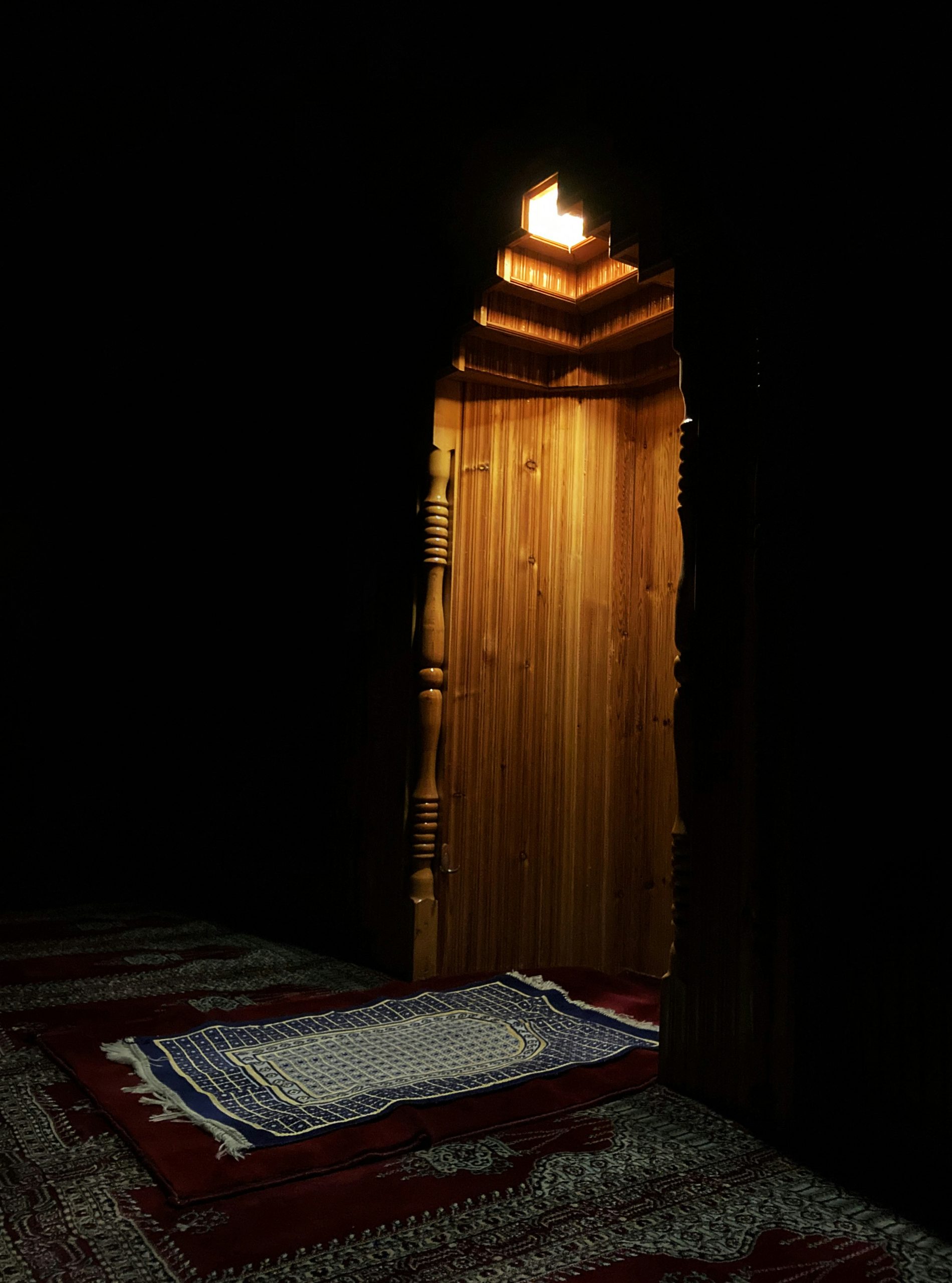
 brought by our beloved Messenger
brought by our beloved Messenger  after his journey to heaven on the Night of Ascension, the Night of Al-Isra Wal-Mi’raj. He ﷺ said, “When you get up to pray, perform ablution perfectly, then face the qiblah and say: ‘Allāhu Akbar’ (Allāh is Greater). Then recite a convenient portion of the Qur’ān; then bow and remain calmly in that position for a moment, then rise up and stand erect; then prostrate and remain calmly in that position for a moment; then rise up and sit calmly; then prostrate and remain calmly in that position for a moment; then do that throughout your prayer.” [
after his journey to heaven on the Night of Ascension, the Night of Al-Isra Wal-Mi’raj. He ﷺ said, “When you get up to pray, perform ablution perfectly, then face the qiblah and say: ‘Allāhu Akbar’ (Allāh is Greater). Then recite a convenient portion of the Qur’ān; then bow and remain calmly in that position for a moment, then rise up and stand erect; then prostrate and remain calmly in that position for a moment; then rise up and sit calmly; then prostrate and remain calmly in that position for a moment; then do that throughout your prayer.” [ with a question of reverence: he ﷺ said, “O Aisha, would it grieve you if I spend this night in worship to my Lord?” Her reply to the Messenger ﷺ only echoed their love; she said, “By Allah, I love to be close to you and I love what pleases you.”7 And thus, the Prophet
with a question of reverence: he ﷺ said, “O Aisha, would it grieve you if I spend this night in worship to my Lord?” Her reply to the Messenger ﷺ only echoed their love; she said, “By Allah, I love to be close to you and I love what pleases you.”7 And thus, the Prophet 
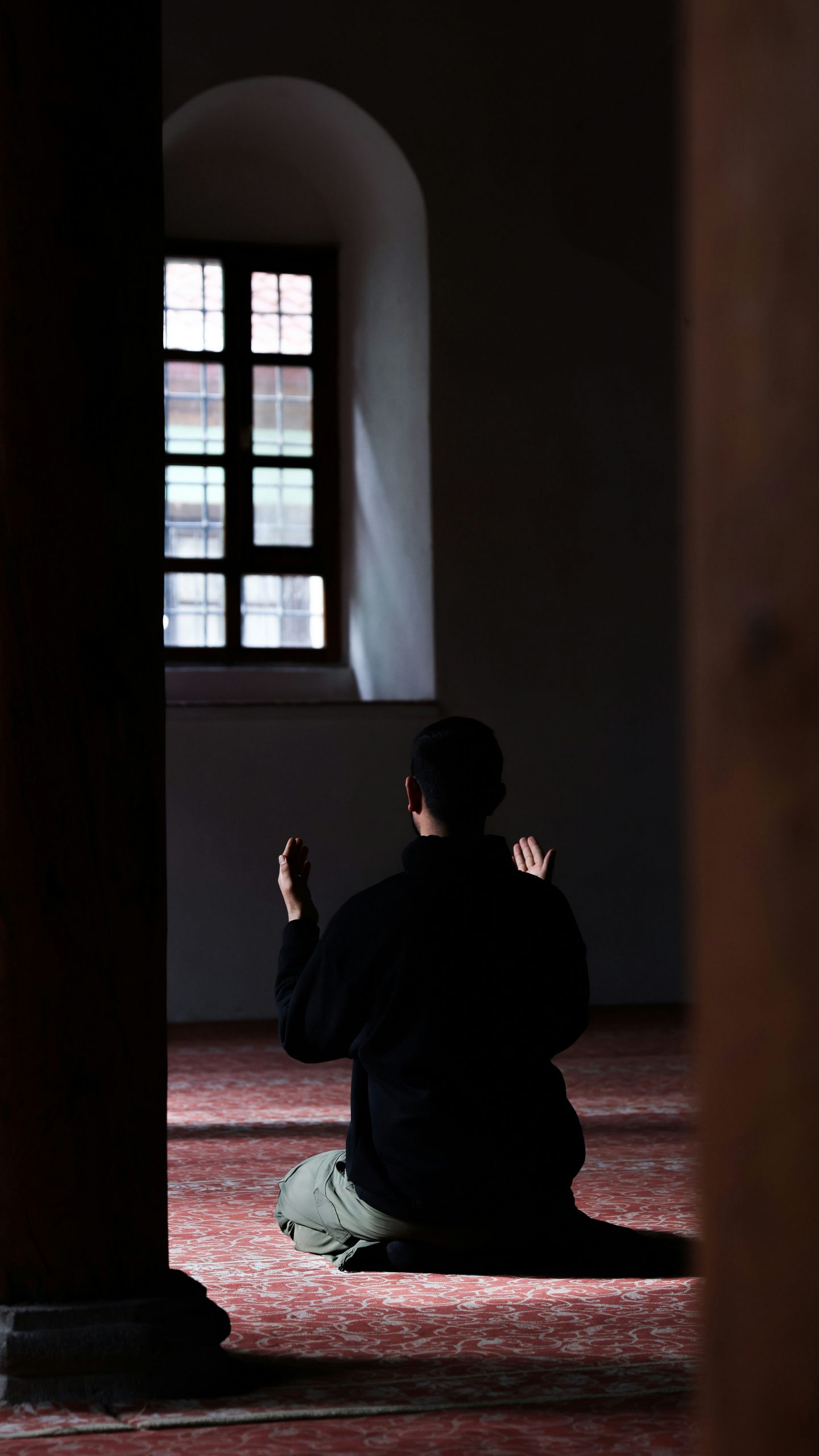




 emphasis on the part about the pious spouse.
emphasis on the part about the pious spouse.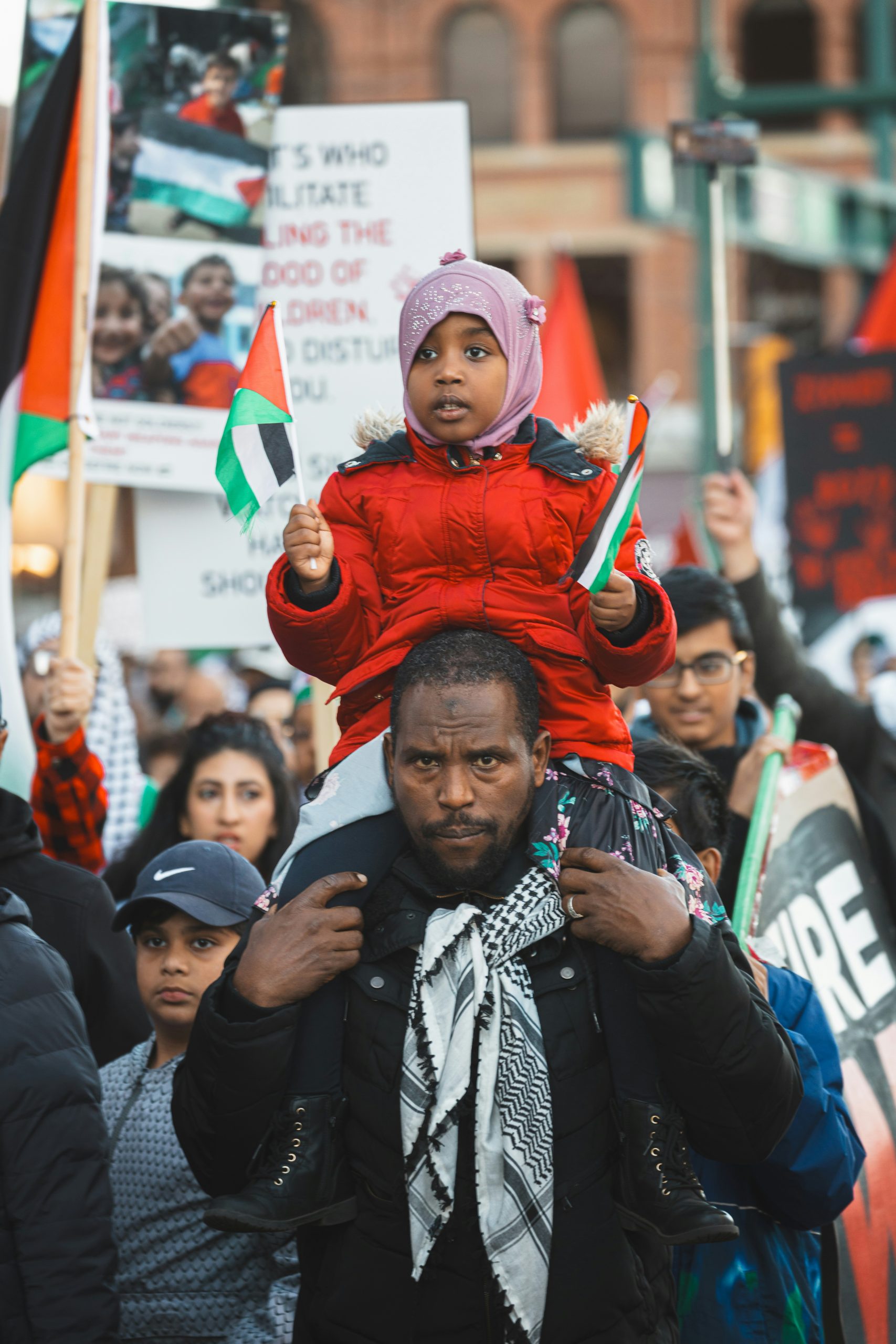
 was born, where RasulAllah
was born, where RasulAllah 